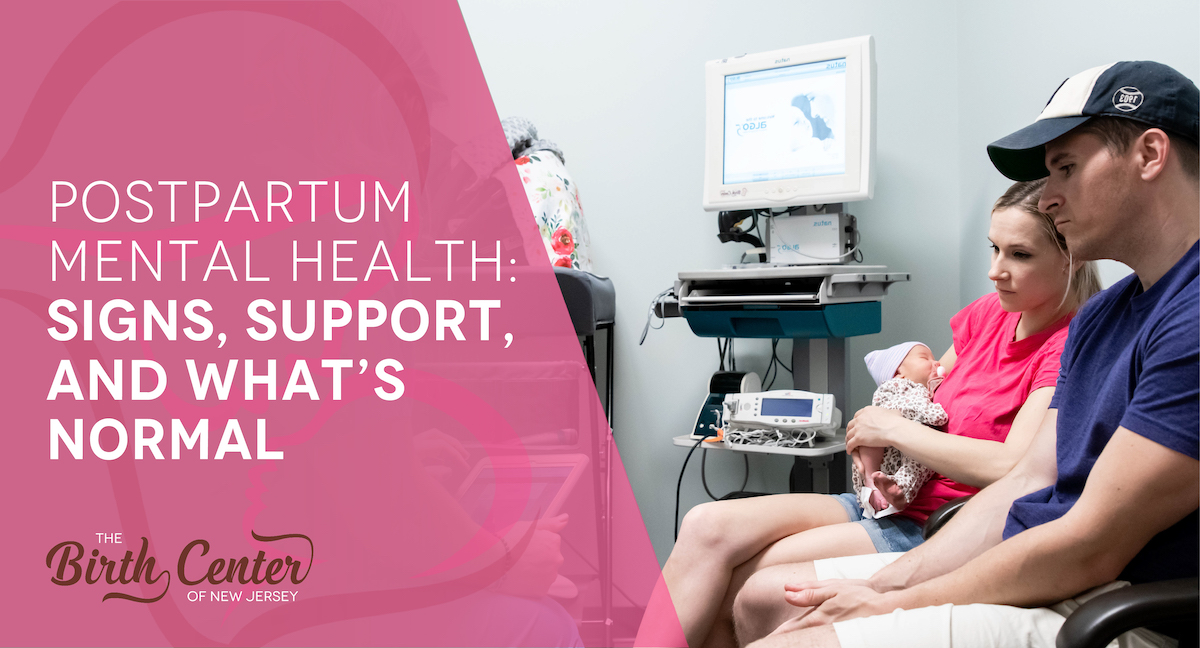
Postpartum Mental Health: Signs, Support, and What’s Normal
The postpartum period, often called the fourth trimester, is a time of transformation. Your body is healing, your hormones are shifting, and your role as a parent is beginning. This time can be full of love and joy, but it can also bring exhaustion, worry, and unexpected emotions. Understanding what is normal and when to reach out for help is an important part of postpartum care.
What is the fourth trimester?
The fourth trimester covers the first three months after birth. During this time, your body recovers from pregnancy and labor. Hormones fluctuate significantly, which can affect your mood and energy levels. Your nervous system adjusts to your new life, and your sense of identity may feel different.
This period often brings a mix of emotions. You might feel a strong bond with your baby. At the same time, you could feel tired, overwhelmed, or unsure. It is normal for your mood to fluctuate during this time.
What are some common emotional experiences?
The “baby blues” affect around 70 to 80 percent of new parents. Symptoms can include tearfulness, irritability, and anxiety. They usually appear around days three to five after birth and fade within two weeks. Baby blues are a natural result of hormonal shifts and sleep changes.
Some parents struggle with intense and long-lasting emotional challenges called Postpartum Mood and Anxiety Disorders (PMADs).
These can include:
- Depression
- Anxiety
- Panic attacks
- Intrusive thoughts
- Intense anger
- Feeling disconnected from your baby
Some parents might grieve their birth experience. They may also struggle with body changes or feel a loss of independence.
PMADs are treatable, and seeking help is an important step toward recovery.
How can midwives support my mental health?
Midwives offer continuity of care. This means they know you well before your baby arrives. Postpartum visits are not just about physical healing. Midwives ask about your emotional well-being and encourage open, honest conversations.
Questions like “How is your heart?” or “What has this week been like for you?” invite more meaningful dialogue than just checking physical recovery. Birth centers usually plan longer visits. This gives you time to share your story, talk about challenges, and get reassurance. Some midwives provide home visits. This way, you get support in the place where you feel most comfortable.
What are some signs that I might need more support?
You should reach out to your midwife or a mental healthcare provider if you experience:
- Ongoing sadness or hopelessness
- Difficulty sleeping or eating, even when you have the opportunity
- Feeling numb or disconnected from your baby
- Intense fear or anxiety that does not ease
- Uncontrollable anger or rage
- Thoughts of harming yourself or your baby
Partners and family members can help identify these signs and encourage you to seek help. Reaching out is a sign of strength and self-care.
Midwives believe mental health is an essential part of postpartum care. By surrounding you with supportive resources, we aim to help you feel seen, heard, and valued. You do not have to face postpartum challenges alone. With the right support, healing and joy can coexist.
